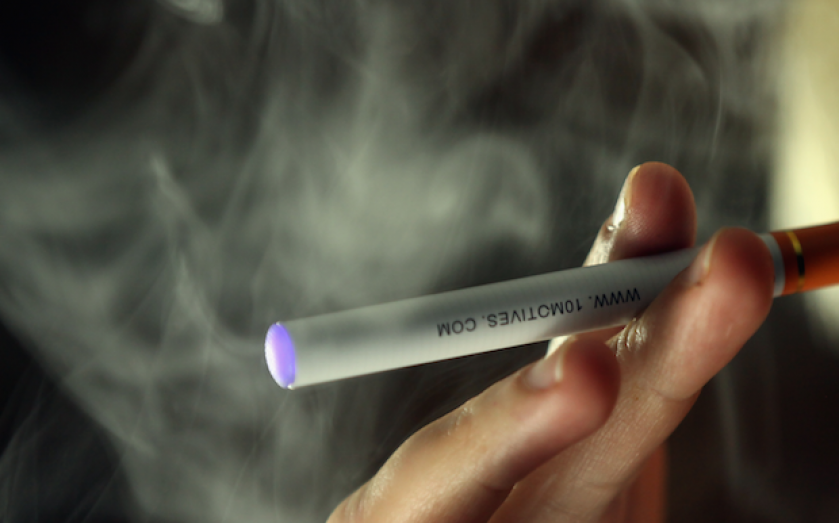Evidence missing in action as Ireland bans ecigarettes in health facilities

Ecigarettes are to be banned in Irish health facilities from 1 May.
The Health Service Executive (HSE) said the crackdown was justified because the devices "pose a challenge to smoke-free campus enforcement and come with safety concerns for a healthcare environment."
The HSE said the decision followed a detailed review of its health policy, adding that it could only authorise the use of "safe and effective products" to stop smoking. What the HSE seem to have underplayed or overlooked entirely is just how radically different vaping is to smoking.
Regular cigarettes contain up to 7,000 chemicals, many highly toxic, 70 of which can cause cancer. By contrast, there are only a handful of ingredients in ecigarette liquid/vapour.
Levels of nitrosamine and formaldehyde in nicotine vapour from ecigarettes are 1,000 times lower than in conventional cigarettes. A slew of health professionals and academics have agreed that the devices are a whole order of magnitude safer than regular tobacco products.
Dr. Robert Lahita, chairman of medicine and vice president of Newark Beth Israel Medical Centre, told the Lafayette Journal & Courier:
Traditional paper cigarettes contain a lot of other carcinogens, and the burning of their tobacco, tar, carbons and other harmful chemicals creates tremendous toxic side effects. So, in many ways, nicotine is the least of a smoker’s concerns.
With regards to the effectiveness of ecigarettes, there is a growing body of evidence suggesting the devices are having success where traditional methods have failed.
A 2011 clinical trial found that ecigarette use led to sustained smoking abstinence for 22.5 per cent of smokers who were not motivated to quit, while there was a large reduction in cigarette consumption for a further 32.5 per cent.
More recently, a 2013 Lancet study divided 657 smokers into three categories: one-third were asked to use nicotine patches, one-third ecigarettes and one-third placebo ecigarettes.
The ecigarette users were more likely to refrain from smoking altogether during the experiment, more likely to halve their use of cigarettes if they did not quit completely, and three times more likely to continue using the product afterwards.
While the HSE are taking the precautionary principle to the extreme, anti-tobacco veterans such as the former director of Action on Smoking and Health (ASH) Clive Bates, have welcomed the innovative devices.
With ecigarettes rapidly gaining in popularity and smoking rates stagnant or moderately declining across the developed world, there is precious little evidence that vapers will turn back to cigarettes with a vengeance. It also remains highly speculative that non-smokers will start using e-cigarettes and quickly find themselves on the slippery slope to a pack a day.
American lender Wells Fargo has gone so far as to say ecigarettes could be outselling conventional cigarettes within a decade. Japanese banking giant Nomura, recently forecast that ecigarettes are set to rise to 15 per cent of equivalent units in the US by 2023.
Ireland's clampdown comes just over a week after elements of the World Health Organisation (WHO) proposed to regulate ecigarettes as stringently as conventional cigarettes, according to documents leaked to the Financial Times.
The EU has already embarked on a process of tighter regulation, with a ban on devices with a nicotine concentration of over 20mg/ml. The decision was widely criticised since higher strength ecigarettes are seen as one of the most useful ways for long time smokers to kick their habit.
The consequences of the decision are potentially devastating, with London Economics estimating the ban could prevent the saving of 105,000 lives.